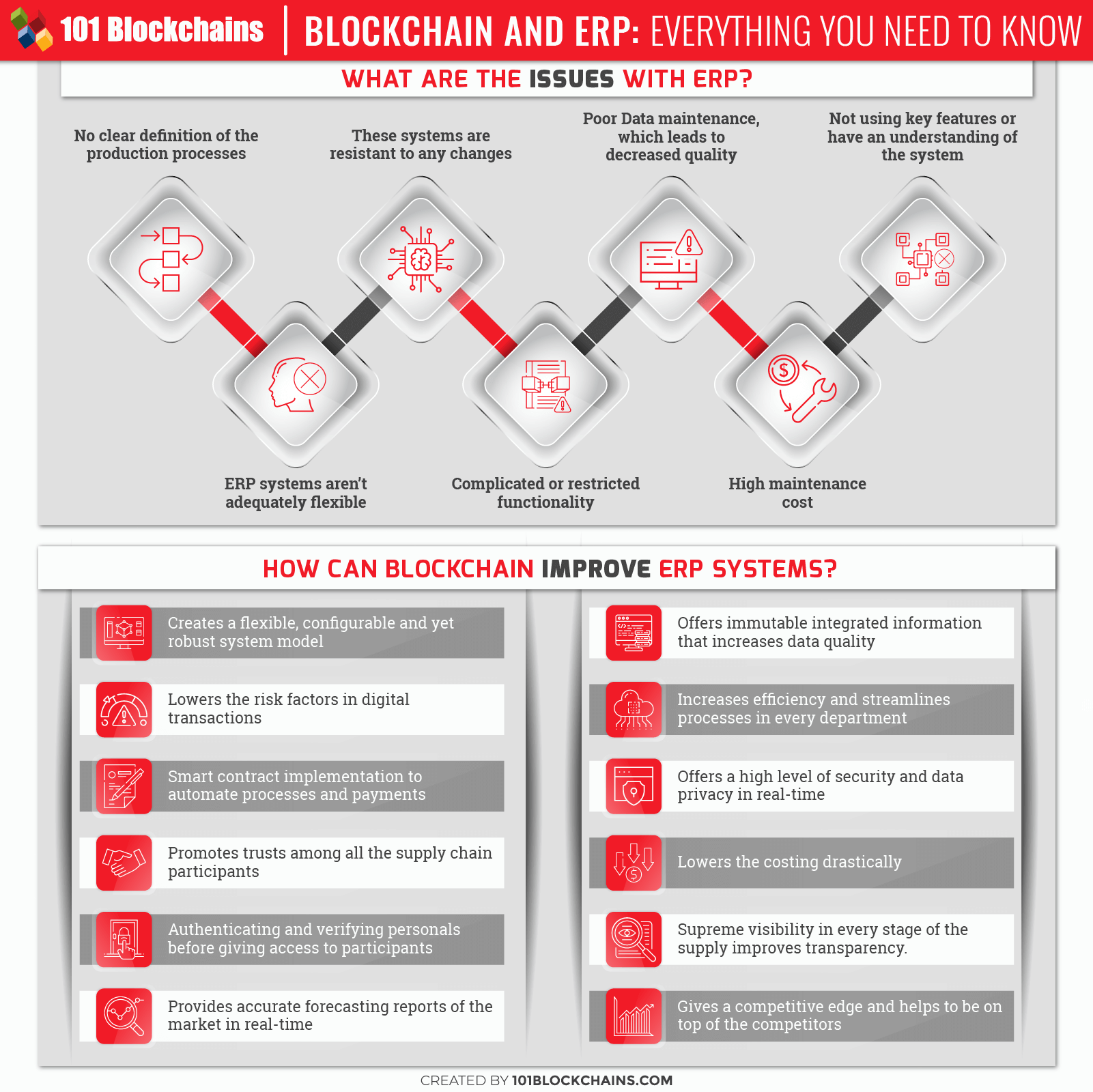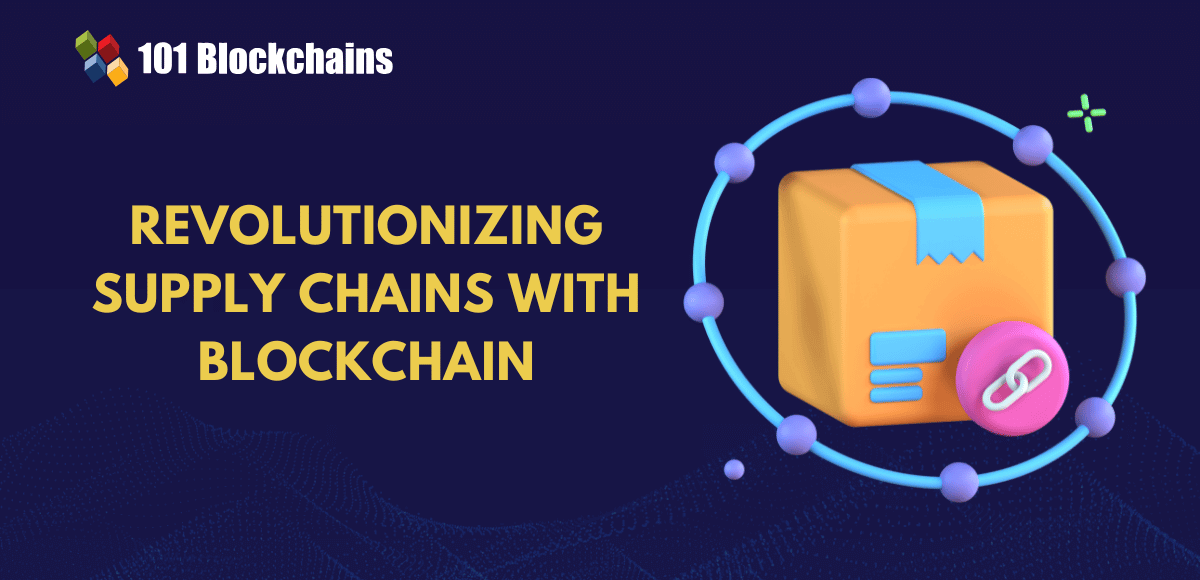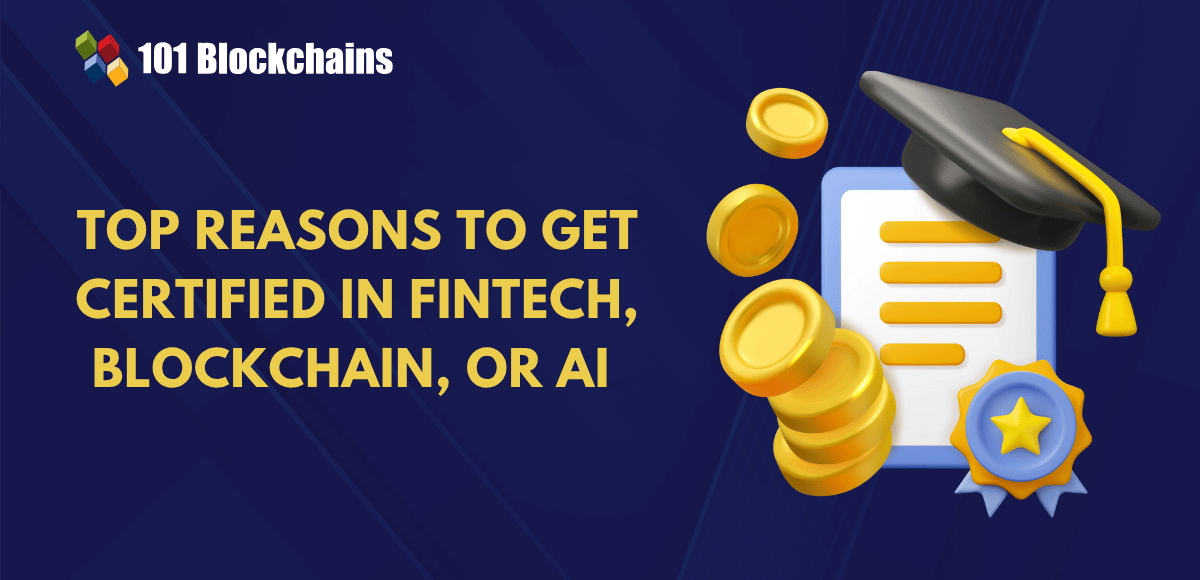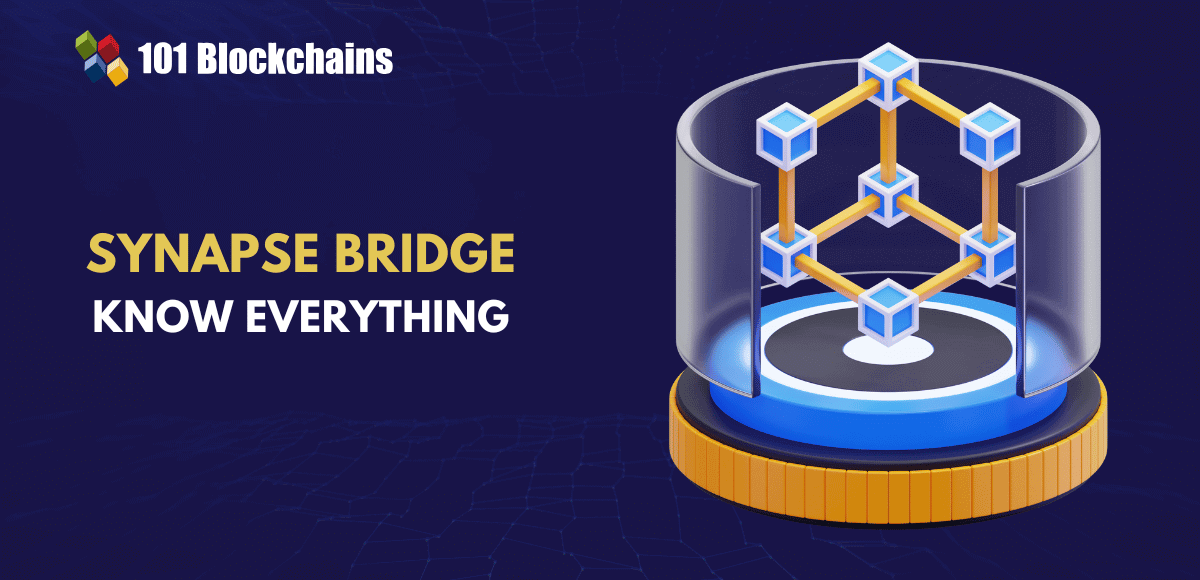Learn how blockchain truly works, master key definitions, and uncover what makes smart contracts so "smart." Dive into the fundamentals, gain valuable insights, and start your blockchain journey today!
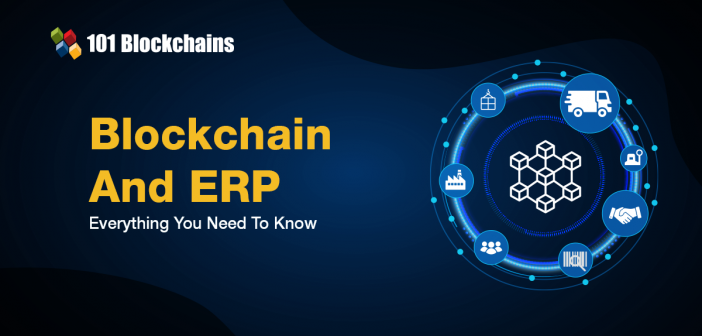
- Blockchain
Hasib Anwar
- on November 28, 2021
Blockchain and ERP: Streamlining Your Business
Blockchain technology is a disruptive force that is slowly altering how the different business model works these days. I think you have already seen many changes so far in various industries such as Healthcare, Supply chain, Government, Trade Finance, Banking, etc. However, there’s still a lot of ways to go.
To streamline the business in enterprises, many companies use ERP systems. These systems are already increasing efficacy. However, some of you may be skeptical about whether blockchain should replace these systems or not.
Build your identity as a certified blockchain expert with 101 Blockchains’ Blockchain Certifications designed to provide enhanced career prospects.
BLOCKCHAIN AND ERP- EVERYTHING YOU NEED TO KNOW
Please include attribution to 101blockchains.com with this graphic. <a href='https://101blockchains.com/blockchain-infographics/'> <img src='https://101blockchains.com/wp-content/uploads/2019/11/Blockchain-and-ERP.png' alt='Blockchain and ERP='0' /> </a>
So, will the technology replace ERP systems? Or will blockchain and ERP work together to create a new model? In this guide, I’ll focus on the primary issue of the ERP systems and how blockchain can become the missing puzzle piece.
So, let’s start!
What Is ERP?
Well, if you don’t have a clear idea about what this system is, then I’ll clarify it for you. Enterprise resource planning is actually a software that enterprises use to manage their daily outcomes such as procurement, accounting, risk management, project management, supply chain operations, compliances, and many more.
The best part about this software is that sometimes they come as a suite, in that case, they can also include performance analysis, predictions, budgeting, planning, or reports on daily events. In reality, ERP systems can really boost a company’s performance.
And because you get a flow of reports and can see what exactly goes on in your company, changing plans or strategies become easier.
However, I have to say the system is fully centralized. So, it comes with its own set of issues that can cause more harm than benefiting you. And this is where blockchain and ERP systems fall in. However, I’ll dive into that later. First, I’ll point out the significant issues in ERP systems.
So, let’s move on to the next segment in this blockchain and ERP guide.
What Are Issues with ERP?
-
No Clear Definition Of The Production Processes
First of all, many of you may use ERP systems, but when you try to implement it for the first time, sometimes you may forget to define the production process entirely. More so, if your company has different departments competing with each other, then figuring out which department can benefit the most becomes an issue.
Also, some of your existing processes may not even need the system, but integrating it would decrease efficiency. Also, if you don’t map out the operations, clearly, the ERP system can’t work out the process correctly. In reality, it needs a lot of time to perfect, and rushing it won’t help.
This is one of the significant issues of any ERP system that it takes a lot of time to set up. Also, many times, it fails to offer an efficient process for your company.
Anyhow, let’s move on to the next issue in this blockchain and ERP systems guide.
-
ERP Systems Aren’t Adequately Flexible
Another major issue of this software is that it’s not quite flexible. So, when it should adapt to your processes, instead, you may have to adjust to its modeling structure. If not, it may not work as you would want it.
Basically, ERP systems come with predefined functionality. Also, they aren’t modular that you can just add up the feature you need. Thus, if your company needs a specific feature, the ERP system can’t offer it every time. More so, you would just be wasting your time and resources, and that can seriously hamper your brand as well.
Anyhow, let’s move on to the next issue in this blockchain and ERP systems guide.
-
These Systems Are Resistant To Any Changes
Most of the ERP systems fail because they fear change. Basically, these are old technology that isn’t so keen about new technology revolutions. Furthermore, jobs and business scenarios keep on changing. But most companies don’t flow with that change and rather stay with the old infrastructure.
In many cases, these systems don’t come with frequent updates and soon becomes obsolete in the changing market scenario.
Obviously, changing the internal system would mean delays and time consumptions, however, being resistant would affect it more badly in the long run. More so, many times, you have to get rid of the whole software integration itself and move onto the new ones. And that could mean a lot of investments over again.
Let’s check out the next issue in this blockchain and ERP systems guide.
Start your blockchain journey Now with the Enterprise Blockchains Fundamentals
-
Complicated Or Restricted Functionality
Most ERP systems these days are overly complicated. More so, they come with complex UI designs and odd functionalities that can become overwhelming. Moreover, these systems are also quite restricted when it comes to features.
In many cases, companies get swayed by a marketing agent and then integrated a bad ERP system. It definitely hampers the company’s business and brand value. And that’s why you need to know which ERP system can be beneficial for you and whether that software is up-to-date or not.
Anyhow, let’s move on to the next issue in this blockchain and ERP systems guide.
-
High Maintenance Cost
It’s needless to say that implementing an ERP system would cost you quite a fortune. Even though the initial implementation is quite costly and can take a lot of time, still maintenance also becomes an issue. All the ERP systems need to be maintained regularly, and that would also come with associated costs.
Some of the ERP systems may be cheap at the start, but the overall maintenance cost can sum up to be a large amount. That’s why it’s a rather big and unpleasant decision when you are looking for an ERP system for your company.
Let’s check out the next issue in this blockchain and ERP guide.
-
Not Using Key Features Or Have An Understanding Of The System
Your consumers also need to understand how the ERP system would benefit them. If you are offering a feature using the software, you need to educate your consumers as well. In most cases, many ERP systems have a complex UI, which is difficult for a user to control.
Also, ERP systems don’t empower the users, and this could have a negative impact on your company as well. More so, as the system isn’t fully transparent, there can be a lot of underlying trust issues as well.
Anyhow, let’s move on to the last issue in this blockchain and ERP guide.
-
Poor Data Maintenance, Which Leads To Decreased Quality
Data maintenance in the ERP system isn’t up to the mark now. Many often overlook the transformation of quality data while implementing the system. In reality, this can become a huge burden when your company fully depends on the quality of those data.
Also, as the ERP system is centralized, many take advantage of that and introduce false data to the system. When other parties use that data to implement or strategize their projects, they face major issues.
Also, many times, there’s a lot of human-made errors that can also decrease the quality of data. So, you see, you should never underestimate data quality as your whole brand will depend on it.
Enough about the issues for now. Let’s check out how blockchain and ERP can come together and benefit the enterprises greatly.
Curious to learn about blockchain implementation and strategy for managing your blockchain projects? Enroll Now in Blockchain Technology – Implementation And Strategy Course!
How Can Blockchain Improve ERP Systems?
-
Supreme Visibility in Every Stage of the Supply Improves Transparency
Blockchain for ERP systems can offer you the highest level of visibility in every part of the process. Usually, the supply chain tends to be a lengthy yet segmented process. More so, tracking all the processes or how the product is in every stage becomes relatively difficult.
That’s why using blockchain for enterprise technology to track the processes in real-time can really solve the issues of the supply chain. Additionally, you can get real-time reports on where the product is at the moment and what the temperature or the product quality is.
Thus, it can help you store your products in an ideal environment as well.
-
Promotes Trusts among All the Supply Chain Participants
With blockchain ERP use cases, you can promote trust within all of your supply chain participants. How? Well, as everything in the system is visible for everyone’s eye, it ensures that there’s no underlying catch or corruption going on.
In reality, it would come in handy when working with a new company rising on the market. Anyhow, ERP systems are great, but they heavily depend on the people rather than the system itself. But in the blockchain, instead of trusting people, to be honest, enterprises can trust the system as no one can do any illegal activities in the network.
Excited to learn about the supply chain in blockchain? Enroll Now in Enterprise Blockchains and Supply Chain Management Course
-
Authenticating and Verifying Personals before Giving Access to Participants
Another one of the blockchain ERP use cases is the authentication process at the very start. In blockchain and ERP integration, you can set up a multi-factor authentication process to filter out any outsider presence within the network.
More so, with blockchain, you can get bio-metric authentications as well. In reality, you can highly benefit from this approach as you can authenticate your employees based on their location. Additionally, customers trying to reach a salesperson can also prove their identities from this platform.
So, it’s a great addition to the enterprise altogether.
-
Smart Contract Implementation to Automate Processes and Payments
Blockchain for ERP can offer you what no ERP system can offer – smart contract implementation. With smart contracts, you can easily verify the transaction with your suppliers. Also, as the process is automated, once the pre-defined rules are met, the contract will initiate itself automatically and process the transactions.
For example, you are trading with another overseas company. So, after initiating a smart contract with that company, you can request for your supplies. In reality, you can track the process of trading, and once you get the product, the smart contract will automatically release the funds.
So, it can be a great feature that you can only get with blockchain.
Curious to understand the complete smart contract development lifecycle? Enroll in Smart Contracts Development Course Now!
-
Lowers The Risk Factors In Digital Transactions
Another one of the blockchain ERP use cases is the low risk in digital transactions. In reality, ERP systems can also offer transactions; however, they aren’t that secured as of now. Furthermore, security vulnerabilities enable hackers to target centralized servers and hack a transaction.
However, blockchain with ERP systems can really change the scenario here. In reality, blockchain offers peer-to-peer transaction processing, which is quite effective and fast. Also, the security protocols in every blockchain or enterprise tech are quite high. Thus, hackers can’t get access to these platforms easily.
Moreover, as they have a decentralized environment, it’s quite impossible for a hacker to track down and hack a user’s account. And so, the coupled technology can easily offer high security for digital transactions.
-
Offers a High Level Of Security and Data Privacy in Real-Time
Another great advantage of blockchain with ERP systems is that together, they offer the highest level of security. The integration of enterprise blockchain technology will prevent any data leakage, detect any security threat or loopholes, and detect unauthorized activities in real-time.
The best part is that it can not only detect but can also prevent these types of security concerns. In reality, blockchain for business can offer authenticated access and get rid of any unwanted third party. Also, it can offer full privacy to information that’s not for public eyes.
Enterprises deal with a lot of sensitive information, and getting access to based privacy can help to maintain the regulations within the company. Furthermore, it can also get rid of any vulnerabilities due to employee interactions.
-
Compliance With GDPR And Secure Storage Facility For Sensitive Information
When dealing with consumers and their sensitive information, enterprises need to be GDPR compliant. Furthermore, you need to ensure that all the information of your customers remains private, and no third-party company can mine those data for market analysis.
Take the Facebook scandal as an example. You definitely don’t want to go through sometimes like that. If you don’t follow the Blockchain GDPR rules, you can face serious legal issues and fines. Not to mention that your brand value would take a massive hit along with that as well.
This is where the blockchain ERP use cases come into play. With blockchain help, you can securely store all the consumers’ information without any issues. More so, you can also be fully compliant with GDPR and offer full transparency in case of handling customers.
-
Lowers The Costing Drastically
We all know how small mistakes in the enterprise environment can result in costly penalties. So, when it comes to strategies, you need to be smart with all your finances and avoid any kind of errors altogether. But only depending on the ERP system isn’t enough.
Blockchain for ERP is the perfect solution in this regard as it can automate processes, give you real-time data, track products, transactions, and many more. In reality, with help from these systems, manufacturers can prevent disruptions, manage operations, break up information, and many more. And so, blockchain and ERP can be the smartest way to go if you want to lower down your costing.
-
Gives a Competitive Edge and Helps to Be On Top Of the Competitors
One of the greatest blockchain ERP use cases is the competitive edge you get in the market. In reality, the business world is awfully fast-paced, and if you don’t follow suit, then you can soon fall behind. So, when new innovations start to come, you need to be able to embrace it rather than recent it.
And this is where blockchain technology comes in. Blockchain is going to be the tech of the future, and it’s going to create a $3.1 trillion dollar marketplace. Security your place in that market would definitely give you a competitive edge.
Also, blockchain offers lots of features that can increase your brand value and revenue at a rapid rate. So, when you couple blockchain and ERP systems together, you end up with a far more superior-tech that can take your business to the top.
-
Provides Accurate Forecasting Reports of the Market In Real-Time
For an enterprise, accurate forecasting of the marketplace is relatively a necessary process. So, many companies tend to get ERP systems for that. In reality, ERP systems are great, but as they have low data quality problems, sometimes accurate data forecasting isn’t possible.
And so, blockchain for ERP can change that scenario and help ERP systems to forecast marketplaces even better. More so, there are plenty of blockchain technologies in the market dedicated to market forecasting. You can definitely use those along with ERP systems.
With the strong forecasting technology from blockchain coupling with ERP systems, you can get more accurate reports of the marketplace, even in real-time! Thus, enterprises business can move towards more realistic and effective goals.
Not sure how to build your career in enterprise blockchains? Enroll Now in How to Build Your Career in Enterprise Blockchains Course
-
Offers Immutable Integrated Information That Increases Data Quality
Blockchain and ERP integration will offer you an immutable system that no one can alter or delete as they wish. In reality, the centralized system of the ERPs is quite vulnerable and faulty. In this model, users can change or alter data after one puts in in the system. So, if an employee wants, he/she can easily manipulate the data and benefit from it.
However, they would not only benefit themselves, but they can also corrupt the data, and that would lead to decreased data quality. And so, with blockchain in the mix, once the data gets into the ledger, no one can change that data anytime soon.
So, now you have fully accurate, unique, and high-quality data that is verifiable anytime. It’s definitely one of the best benefits of blockchain.
-
Creates A Flexible, Configurable And Yet Robust System Model
Well, blockchain and ERP integration create a configurable, flexible, and robust model. There are many blockchain technologies out there that offer extensive customizations. Many best enterprise blockchain platforms such as Hyperledger, Enterprise Ethereum Alliance, R3 Corda, Quorum, Ripple and etc. offer an architecture that you can shape based on your requirements.
Also, these systems can quickly adapt to the changing business scenarios and make sure that you don’t end up with an obsolete system. However, make rue to figure out which blockchain technology to choose while you are integrating it with your ERP systems.
Blockchain and the ERP system needs to be fully compatible with each other to make it work. In reality, blockchain can be the shield for ERP systems as they have vulnerable centralized servers that can easily be hacked.
So, in a way, they both can give rise to a robust yet flexible environment.
-
Increases Efficiency And Streamlines Processes In Every Department
As time goes by, in manufacturing, the process becomes more and more complicated. Therefore, many enterprises face errors that cause costly outcomes. However, with help from the blockchain with ERP, they can easily automate their business processes.
More so, they can maintain cross-department operations, real-time information, and solutions, eliminating human errors, and many more. By using this new tech, combination enterprises can get rid of the manual labor and increase their efficiency at a rapid rate.
Also, blockchain can really help get rid of the complex processes and false data along with improving deliveries.
You can also save a tremendous amount of time and increase your productivity level. In reality, the automation process of the blockchain can make up for the losses happening in other departments. Also, employees don’t have to worry about all the small details, and the technology can take off that easily.
Furthermore, employees can also enjoy the ease of use and minimal workload. So, in the long run, enterprises can really increase their brand value.
If you really want to become enterprise blockchain professional, you must enroll in Certified Enterprise Blockchain Professional (CEBP) course now!
Concluding Thoughts: Blockchain and ERP Will Interact For Now
Blockchain with ERP system is a huge stepping stone for the enterprises. ERP systems are absolutely effective even though they come with some issues. However, these issues aren’t prominent enough for blockchain to replace ERPs altogether. So, for now, I think blockchain would work as an additive for the ERP systems.
More so, I don’t think blockchain technology can fully get rid of ERPs yet. Rather blockchain and ERP integration can strengthen the automation and integrity of the supply chain.
As far as the performance goes, blockchain comes with its fair share of capabilities as well. And together, blockchain with ERP, the tech can easily change the supply chain industries for good.
But we can’t forget the fact that ERP systems are quite expensive and companies investing in them can’t drop these systems whenever they want. That’s why ERP companies may keep developing more software in the long run.
Needless to say, Blockchain & ERP integration is revolutionizing how public as well as private organizations are looking to create efficiencies. Given its soaring demand, the demand to develop expertise in this technology is also increasing. There are a few career-boosting opportunities that can help you prepare for your professional future and join the revolution in Blockchain world!

